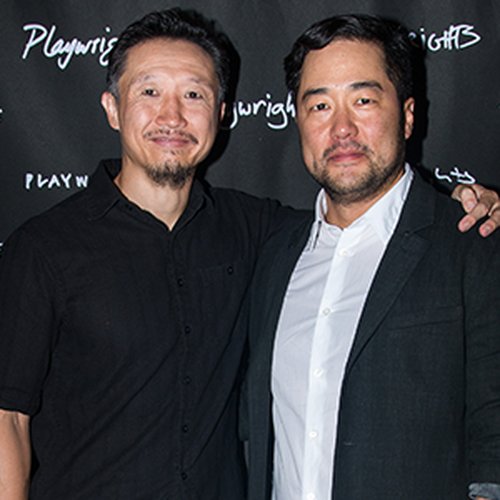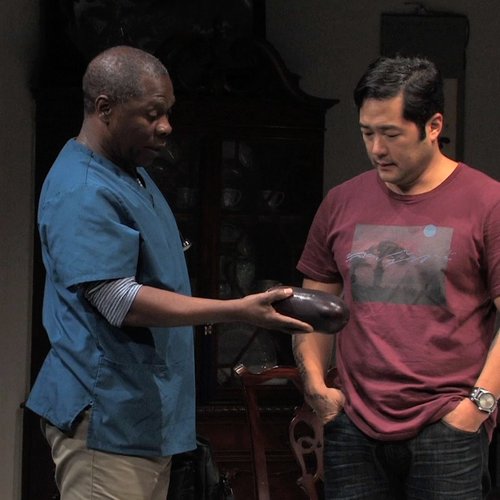Playwright's Perspective: Julia Cho
By Julia Cho, Playwright

There are two dishes, above all, that I associate with my father. The first is ramen. And by “ramen” I mean instant ramen, not the artisanal, simmered-for-40-hours kind of Japanese ramen so popular right now. The latter is undoubtedly more delicious but was entirely unavailable to me in my youth. What we had was the instant kind, in colorful packs, and we bought it by the box. It is hard to overstate the resonance this kind of ramen holds not just for me, but for many Korean Americans. We grew up eating it in all its umami glory, usually with an egg cracked straight into it while boiling.
My mother cooked almost all of our meals from scratch — a heroic endeavor I utterly failed to appreciate or measure up to — so ramen was never, say, dinner. Ramen was something eaten in the off hours, late at night. I’d come downstairs looking for a snack to find my father standing over the stove with the small, steel pot whose entrance into our family predated mine and whose sole purpose, it seemed, was to make ramen. He’d see me and wordlessly add another block of noodles and packet of seasonings to the pot. There was something calm and contented about those late night meals. My memory is tricky — as tricky as that of my characters. So I don’t know if there’s a certain wish fulfillment going on. But I’d like to think we had some good meals together in the quiet of our house, slurping soup together late into the night.
There was something calm and contented about those late night meals.
But ramen was something my father ate at home because it was quick, easy, and cheap. It was not his favorite food. For that, we would have to go out to eat and the only kind of food we really went out for was Chinese food. At least, growing up, that’s what I thought it was. We went to restaurants with words like “Peking” or “Dragon” in the title and they often had paper placemats printed with the Chinese Zodiac, so you can understand why I assumed what we were eating was Chinese. But what my parents actually went out for was not Chinese food — Mandarin, say, or Szechuan. What they went out for was Korean Chinese food.
This is a terribly reductive food history, but what I understand is that the Chinese went to Japan and opened restaurants, which led to ramen. But the Chinese also went to Korea and opened restaurants, which led to dishes such as jajangmyun and my father’s hands-down favorite dish: jjamppong. It is a red and fiery seafood soup, with thick udon-like noodles and a briny, spicy broth. We kids would order the sweeter, milder jajangmyun and my father would order his jjamppong and all of us were happy and sated.
I bring up these two dishes because when someone dies, one of the harder aspects is that you no longer get to eat with them. There are some religions that construct altars for their dead and leave food for them to have in the afterlife. I know one friend who put a Pepsi and a donut on the altar for his grandmother because those were her favorite foods. For my father, I would put ramen and jjamppong. But being Christian, we have no altars. So instead, I eat ramen, now sharing it with my own children, who lap it up with an almost primal instinct as I have yet to find a child who doesn’t like noodles. And should I be so lucky to be in LA’s Koreatown, I go to Young King and order their jjamppong. I think of my father — this man who ate out so rarely, who gave himself so few material luxuries that when he died, he left almost nothing to inherit. He grew up in a time and place where there were no cameras; of his early life, or even his life as a young man, I know virtually nil. But I know what he ate; I know what foods he liked. And so it is a kind of communion: I eat these things in remembrance of him.


